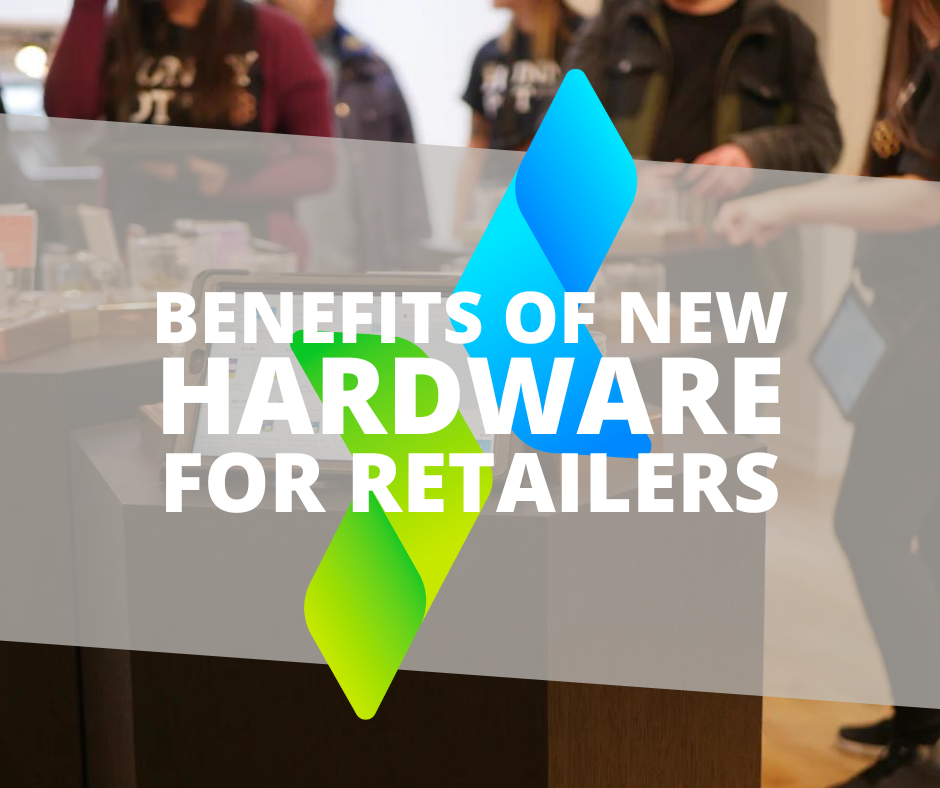In this blog, we will delve into the various advantages of adopting new hardware for retail stores and examine how the benefits outweigh the initial expenses.
5 Benefits of Retailers Investing in New Hardware:
- Enhanced Customer Experience
- Improved Inventory Management
- Robust Security Measures
- Integration and Scalability
- Cost Savings and Efficiency
In today’s rapidly evolving retail landscape, embracing technological advancements is crucial for staying competitive. One such area of focus is upgrading hardware systems within retail stores. While there may be upfront costs associated with implementing upgraded hardware, the long-term benefits and return on investment (ROI) make it a worthwhile endeavour.

1) Enhanced Customer Experience
One of the primary advantages of new hardware in retail stores is the ability to provide an enhanced customer experience. Modern systems can streamline operations, resulting in quicker and more efficient transactions. Point-of-sale (POS) systems equipped with touchscreen interfaces, barcode scanners, and near-field communication (NFC) capabilities allow for smoother and faster checkout processes, reducing customer wait times and enhancing satisfaction.
Moreover, innovative solutions, such as self-service kiosks, interactive digital displays, and augmented reality (AR) devices, enable customers to explore products, access information, and make informed purchasing decisions. These interactive experiences contribute to a more engaging and personalised shopping journey, fostering customer loyalty and encouraging repeat visits.
2) Improved Inventory Management
Efficient inventory management is vital for retail success, and fresh hardware plays a crucial role in achieving this objective. Advanced point-of-sale systems, integrated with inventory management software, provide real-time data on stock levels, product performance, and demand patterns. This enables retailers to optimize their inventory, reduce stockouts, and avoid overstocking, ultimately leading to improved profitability.
In addition, devices like handheld scanners and RFID (Radio-Frequency Identification) readers simplify inventory counting and tracking processes. With accurate and timely inventory information, retailers can make data-driven decisions, enhance supply chain efficiency, and minimize operational costs.
3) Robust Security Measures
Data breaches and security threats pose significant risks to retail businesses. Upgrading systems allows retailers to incorporate advanced security features that protect customer information, prevent fraud, and ensure compliance with data protection regulations. Upgraded hardware often includes encrypted payment processing, biometric authentication, and surveillance systems, safeguarding sensitive data and providing a secure shopping environment.
By investing in secure hardware solutions, retailers can build trust with customers, maintain brand reputation, and avoid potential financial losses associated with security breaches.
4) Integration and Scalability
New hardware systems are designed to integrate seamlessly with other software and technologies, offering retailers greater flexibility and scalability. With cloud-based solutions, retailers can access data and manage operations across multiple locations in real-time, enabling efficient inventory transfers, centralized reporting, and synchronized customer information.
Furthermore, scalable hardware systems allow retailers to adapt to changing business needs and expand their operations without extensive hardware replacement. This flexibility ensures that retailers can remain agile in an ever-evolving marketplace.
5) Cost Savings and Efficiency
While the upfront cost of new hardware may seem significant, the long-term cost savings and increased operational efficiency justify the investment. Modern solutions often consume less energy, reducing electricity costs and contributing to sustainability initiatives. Additionally, advanced systems automate manual tasks, minimize human errors, and optimize resource allocation, ultimately improving productivity and reducing labour costs.
Moreover, the integration of various components, such as POS systems, inventory management tools, and customer relationship management (CRM) software, eliminates the need for separate systems and reduces maintenance expenses.

Embracing new hardware for retail stores is a strategic move. Being that it can deliver significant benefits and elevate the overall retail experience. Enhanced customer experiences, streamlined operations, improved inventory management, robust security measures, integration capabilities, scalability, and cost savings are just a few of the advantages that make investing in fresh hardware worthwhile for retailers.
Datascan can provide businesses with hardware upgrades within stores. The hardware can be specific to your requirements. As a business partner of HP we also have the availability of the wonderfully modern HP technologies. We not only sell HP Hardware but others including Dell, Apple, Honeywell, Logitech, Acer, Zebra and much more.
While there may be initial costs associated with hardware upgrades, the long-term return on investment, increased efficiency, and competitive edge gained outweigh the upfront expenses. By staying up-to-date with the latest hardware technologies, retailers can adapt to the changing retail landscape, meet evolving customer expectations, and drive sustainable growth in the digital era.


